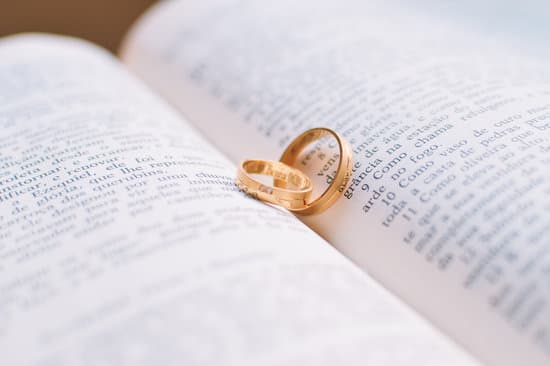Are you currently planning a wedding and wondering about the proper etiquette for addressing your guests, especially when it comes to invitations for doctors? The choice of words and format on wedding invitations can play a significant role in setting the tone for the event and reflecting the couple’s preferences. It is essential to navigate through these decisions with care, especially when considering how to address individuals with professional titles like doctors.
The use of honorifics and titles on wedding invitations has long been a topic of discussion among couples planning their nuptials. Traditionally, there were strict guidelines for addressing individuals with professional titles on formal invitations, including those in the medical field. However, modern trends have seen a shift towards more personalized and informal wording, raising questions about whether to spell out “Doctor” or use other forms of address.
In this article, we will delve into the significance of wedding invitations and explore the evolving etiquette surrounding them. We will discuss traditional rules for invitation wording and how modern trends have influenced these conventions.
Additionally, we will provide detailed guidelines and examples for addressing doctors on wedding invitations, taking into account personal preferences and changing gender roles. By the end of this article, you will have a comprehensive understanding of proper etiquette when it comes to addressing doctors on wedding invitations.
Addressing Doctors
When it comes to addressing doctors on wedding invitations, the use of titles and honorifics in professional contexts plays a significant role. Traditional etiquette dictates that individuals with professional titles, such as “Dr.” for doctors, should have their titles spelled out on formal invitations. This practice is a sign of respect for the individual’s accomplishment and expertise in their field.
Traditional Etiquette for Addressing Doctors
In traditional wedding invitation wording, it is customary to spell out the title “Doctor” when addressing a medical professional. For example, the proper way to address a married couple where one or both individuals hold a doctorate would be “Doctor John Smith and Doctor Jane Doe”.
Modern Approach to Addressing Doctors
However, with evolving social norms and changes in communication styles, some modern couples may choose to deviate from traditional etiquette. In today’s more casual society, many couples opt to use less formal wording on their wedding invitations. It is not uncommon for couples to simply use “Dr.” before the name without spelling out the word “Doctor,” especially if they are having a less formal affair.
Consider Individual Preferences
Ultimately, the decision of how to address doctors on wedding invitations should take into account individual preferences. Some couples may value tradition and opt for the more formal approach of spelling out “Doctor,” while others may choose a more contemporary and less formal style of addressing their guests.
It’s essential for couples to discuss this together and come to an agreement that aligns with their personal values and the overall tone they wish to set for their wedding celebration. Ultimately, regardless of whether you spell out “doctor” on your wedding invitations or not, what matters most is showing respect and consideration for your guests’ professions when addressing them formally in such an important social event.
Traditional Wedding Invitation Wording
When it comes to traditional wedding invitation wording, there are specific rules and etiquette that many couples choose to follow. One common question that arises is how to address guests who hold professional titles, such as doctors. According to traditional etiquette, the title “Doctor” should be spelled out when addressing medical professionals on wedding invitations. For example, a married couple where one of the partners is a doctor could be addressed as “Doctor John Smith and Mrs. Jane Smith”.
Following these traditional rules for addressing doctors on wedding invitations demonstrates respect for their professional achievements and status. It also reflects the formality of the event, especially if the wedding is a more formal affair. However, it’s essential to consider the preferences of the couple getting married when deciding on the level of formality for their wedding invitations.
In addition to spelling out “Doctor,” it’s also important to include any other titles or honorifics that may apply, such as “Reverend,” “Judge,” or military titles like “Colonel” or “Captain.” These details add a personalized touch to the wedding invitations and show thoughtful consideration for each guest’s individual identity and accomplishments. Ultimately, the goal is to make every guest feel honored and respected as they receive their invitation to celebrate this special occasion.
| Traditional Wedding Invitation Wording | Etiquette for Wedding Invitations |
|---|---|
| Addressing Doctors: The Importance of Spelling Out Titles | When addressing guests who hold professional titles like “Doctor” on wedding invitations, it is important to spell out these titles according to traditional etiquette. |
| Reflecting Formality and Respect | Spelling out titles like “Doctor” shows respect for their professional achievements and status while also reflecting the formality of the event. |
| Inclusion of Other Titles | In addition to spelling out “Doctor,” other titles and honorifics such as “Reverend” or military titles should also be included in personalized wedding invitation wording. |
Modern Wedding Invitation Trends
The wording of wedding invitations has evolved over time to reflect changes in society, culture, and language. Modern wedding invitation trends now offer more flexibility and creativity in how couples choose to convey the details of their special day. While traditional rules and etiquette still hold influence, many contemporary couples are opting for more personalized and informal wording on their invitations.
One notable modern trend is the departure from formal titles and honorifics in addressing recipients of wedding invitations. In the past, it was customary to spell out titles such as “Doctor” when addressing medical professionals on invitations. However, with changing social norms and a shift toward informality, many couples now choose to use a less formal approach when addressing doctors on their wedding invitations.
Couples have increasingly embraced the use of casual language that reflects their unique personalities and relationships. This shift has led to a more relaxed approach to invitation wording, allowing for greater individual expression and creativity. As a result, there is no longer a strict requirement to spell out “Doctor” on wedding invitations, and couples are free to address their guests in a manner that feels authentic to them.
How to Address Doctors on Wedding Invitations
When preparing wedding invitations, it’s important to consider the proper etiquette for addressing guests, especially when it comes to individuals with professional titles such as doctors. Properly addressing a doctor on a wedding invitation shows respect and consideration for their accomplishments. Here are some detailed guidelines and examples for addressing doctors on wedding invitations:
1. Use of Titles: When addressing a doctor on a wedding invitation, it is appropriate to use their professional title. Whether they hold an MD, DO, PhD, or other doctoral degree, the title should be included before their name on the invitation.
2. Formal Approach: For a more formal and traditional approach, the title “Doctor” can be spelled out in full before the doctor’s name on the wedding invitation. For example, “Doctor John Smith and Mrs. Jane Smith”
3. Informal Approach: If you prefer a more casual or modern approach to your wedding invitations, using the abbreviation “Dr.” before the doctor’s name is also acceptable and widely recognized. For example, “Dr. John Smith and Mrs. Jane Smith”
It’s essential to consider the preferences of both the couple getting married and the guests they are inviting when deciding how to address doctors on wedding invitations. While following traditional etiquette is important, personalization and individual preferences also play a significant role in creating meaningful and respectful wedding invitations.
Impact of Modern Gender Roles
The impact of modern gender roles on wedding invitation wording has become increasingly significant as societal norms continue to evolve. In the past, traditional wedding invitations followed strict etiquette guidelines regarding the titles and honorifics used to address guests, including those who held professional titles such as doctor. However, with changing perspectives on gender roles and identity, couples are now faced with navigating a more diverse range of preferences when it comes to addressing their guests.
In the past, the conventional practice was to use formal titles such as “Doctor” when addressing medical professionals on wedding invitations. However, as modern gender roles have shifted and evolved, so have the conventions surrounding wedding invitation wording. Couples today are presented with more flexibility in how they choose to acknowledge their guests’ professional titles while still respecting individual preferences for identification.
When it comes to addressing doctors on wedding invitations in the context of modern gender roles, there are several approaches that couples can consider. It’s important to recognize that individuals may have their own personal preferences for how they wish to be addressed, particularly in light of changing gender roles and identities. As such, couples should take into account the specific wishes of their guests when deciding how to address them on their wedding invitations.
- Some doctors may prefer to be addressed by their professional title, while others may prefer a more informal approach.
- Couples can consider using a middle ground approach by acknowledging the individual’s profession without necessarily emphasizing their title.
- Ultimately, open communication with guests regarding their preferred form of address can help ensure that wedding invitation wording reflects respect for both tradition and contemporary attitudes towards gender roles.
Personalization and Individual Preferences
When it comes to wedding invitation wording, personalization and individual preferences play a significant role in determining the appropriate way to address doctors. While traditional etiquette may dictate the use of titles and honorifics, modern trends and personal preferences have shifted the landscape of wedding invitation wording. It’s important for couples to consider their own preferences and values when deciding how to address doctors on their wedding invitations.
Traditional Etiquette vs. Modern Trends
In the past, traditional wedding invitation wording often included the use of titles such as “Doctor” when addressing medical professionals. However, modern trends have seen a shift towards more casual and personalized wording, allowing couples to choose how they want to address their guests. This shift in etiquette reflects changes in societal norms and the desire for more personalized and intimate wedding celebrations.
Respecting Individual Preferences
When it comes to addressing doctors on wedding invitations, it’s important for couples to respect the individual preferences of their guests. Some doctors may prefer to have their professional title included on the invitation as a sign of respect for their hard-earned achievement. On the other hand, some doctors may prefer a more casual approach and would appreciate being addressed simply by their name without any honorifics.
Couples should consider reaching out to their doctor guest directly or consulting with them about their preferred form of address on the invitation. Ultimately, it’s essential to prioritize the comfort and preferences of your guests when it comes to addressing professionals like doctors on wedding invitations.
Customizing Wedding Invitation Wording
In today’s world, there is no one-size-fits-all approach to wedding invitation wording. With changing gender roles and evolving social norms, couples are encouraged to customize their invitation wording based on their unique values and preferences. Whether you choose traditional etiquette or modern trends when addressing doctors on your wedding invitations, it’s essential that you tailor your wording according to what feels most authentic and respectful within your relationship dynamics and social circles.
Conclusion
In conclusion, the question of whether to spell out “Doctor” on wedding invitations ultimately boils down to personal preference and adherence to traditional etiquette. While there are guidelines for addressing doctors on formal invitations, modern trends and individual preferences play a significant role in shaping wedding invitation wording.
The significance of wedding invitations lies in their ability to convey the tone and style of the event, making it important for couples to consider various factors when determining how to address their guests.
The use of titles and honorifics, including “Doctor,” has long been a part of traditional etiquette for formal correspondence. However, as societal norms evolve and modern gender roles impact language usage, there is also an increasing emphasis on personalized and individualized communication. This means that couples have more flexibility when deciding how to address their guests, including those with professional titles.
Overall, the key takeaway is that there is no one-size-fits-all answer to the question of whether or not to spell out “Doctor” on wedding invitations. Couples should consider the formality of their event, their guests’ preferences, and their own personal style when determining the appropriate wording for their invitations. Ultimately, the goal is to convey respect and warmth while setting the tone for a memorable and meaningful celebration.
Frequently Asked Questions
Should You Use Titles on Wedding Invitations?
Yes, it is customary to use titles on wedding invitations. This means addressing guests with their appropriate titles such as Mr., Mrs., Dr., etc. Using titles not only shows respect but also adds a touch of formality to the invitation.
Do You Spell Out and on Wedding Invitations?
When it comes to spelling out “and” on wedding invitations, the general rule is to spell it out only if it’s part of a time, date, or address. For example, “four o’clock” instead of “4:00” or “One hundred and fifty Main Street” instead of “150 Main Street.”
However, if “and” is used to connect two names (e.g., John and Jane Smith), it’s typically not spelled out in this context.
How Do You Address a Mr and Mrs Doctor?
When addressing a couple where the husband is a doctor, you would address the invitation with “Dr. and Mrs.” followed by the husband’s full name. It’s important to prioritize using the husband’s title in this case since traditionally his profession was emphasized over hers.
However, it’s always best to follow the preferences of the couple when in doubt about how they prefer to be addressed on their wedding invitations.

I have been involved in marriages for over 20 years helping couples and singles understand more about them.





